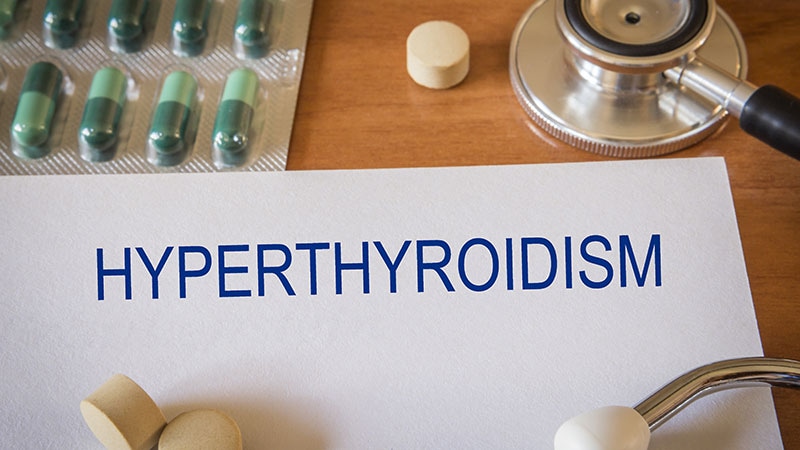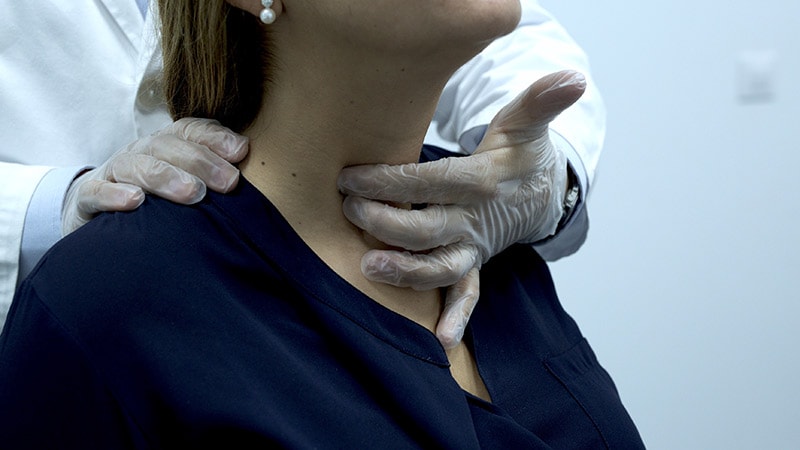Takeaway
- Treatment of hyperthyroidism with radioiodine and anti-thyroid drugs (ATD) was associated with an increased risk of becoming obese.
- Compared with ATD alone, the radioiodine treatment was associated with a small but significant increase in weight.
Why this matters
- Findings suggest that physicians should discuss the risk for excess weight gain and advocate weight management support approaches for patients with hyperthyroidism.
Study design
- 1373 patients with newly diagnosed overt hyperthyroidism and treated either with ATD (n=573) or radioiodine ± ATD (n=800) were included.
- Mean follow-up period: 23 (±8.6) months.
- Funding: None disclosed.
Key results
- Men (OR, 1.7; 95% CI, 1.3-2.2) and women (OR, 1.3; 95% CI, 1.2-1.5; P<.001 for both) with hyperthyroidism were significantly at an increased risk for obesity.
- Radioiodine was associated with a small but significant additional weight gain vs ATD alone (0.4 [95% CI, 0.2-0.6] kg; P<.001).
- During follow-up, an increase in thyroid-stimulating hormone level (≥10 mIU/L; 0.5 [95% CI, 0.3-0.7] kg) and reduction in free thyroxine level (≤10 pmol/L [≤0.8 ng/dL]; 0.3 [95% CI, 0.1-0.4] kg; P<.001 for both) were associated with an increased risk for weight gain.
- Initiation of levothyroxine was associated with weight gain (0.6 [95% CI, 0.4-0.8] kg; P<.001), and the predicted excess weight gain in radioiodine‐induced hypothyroidism was 1.8 kg.
Limitations
- Analysis limited to 2 out of 3 treatment modalities for hyperthyroidism.
- Patients undergoing thyroidectomy were not included.
References
References



